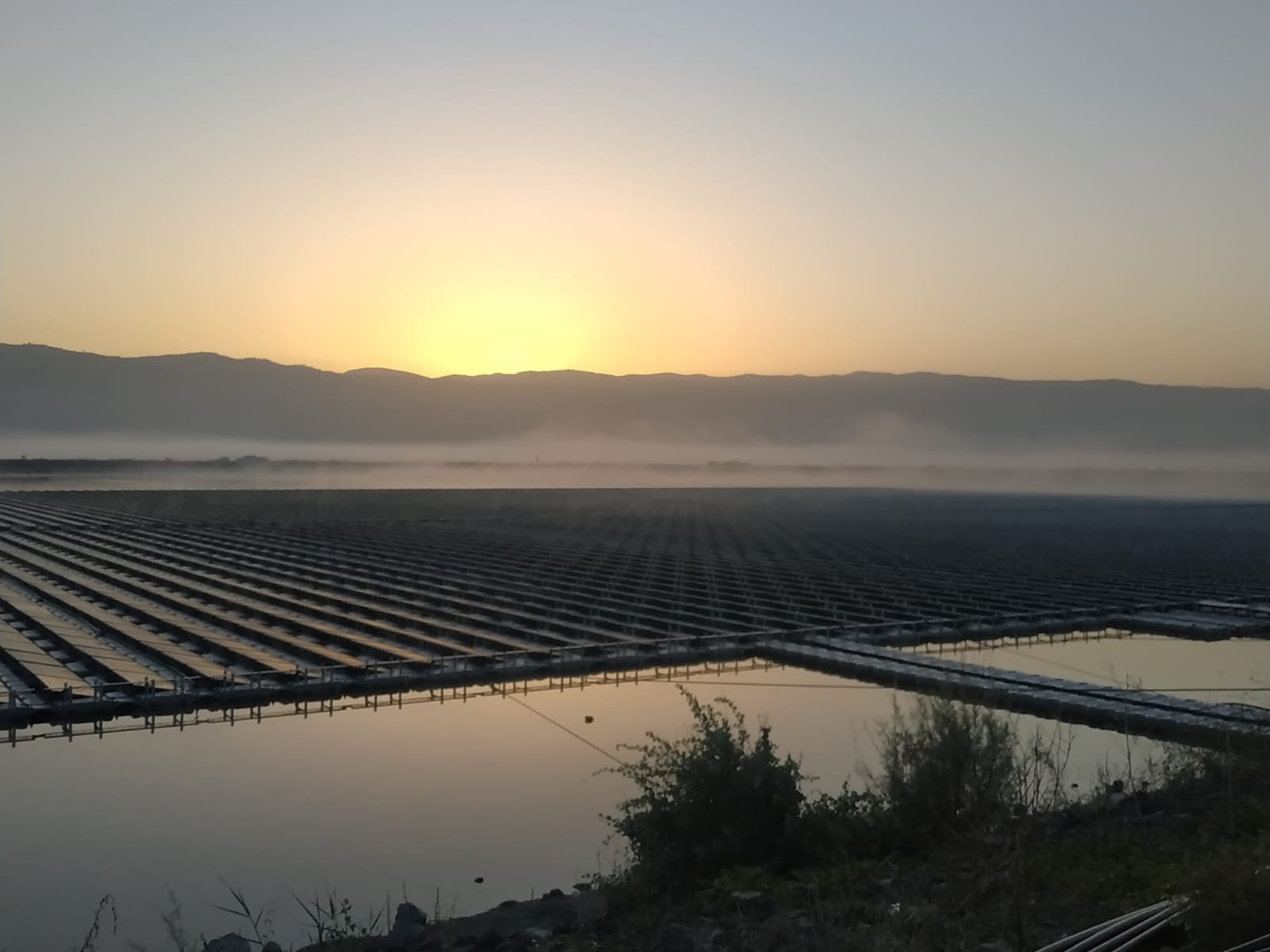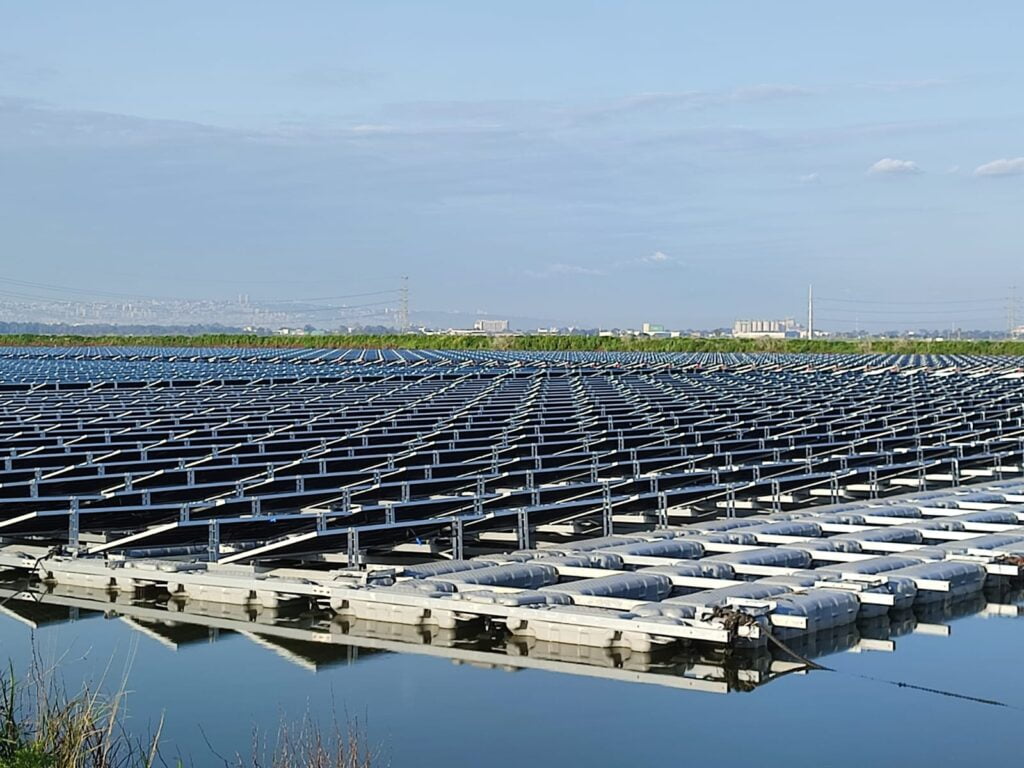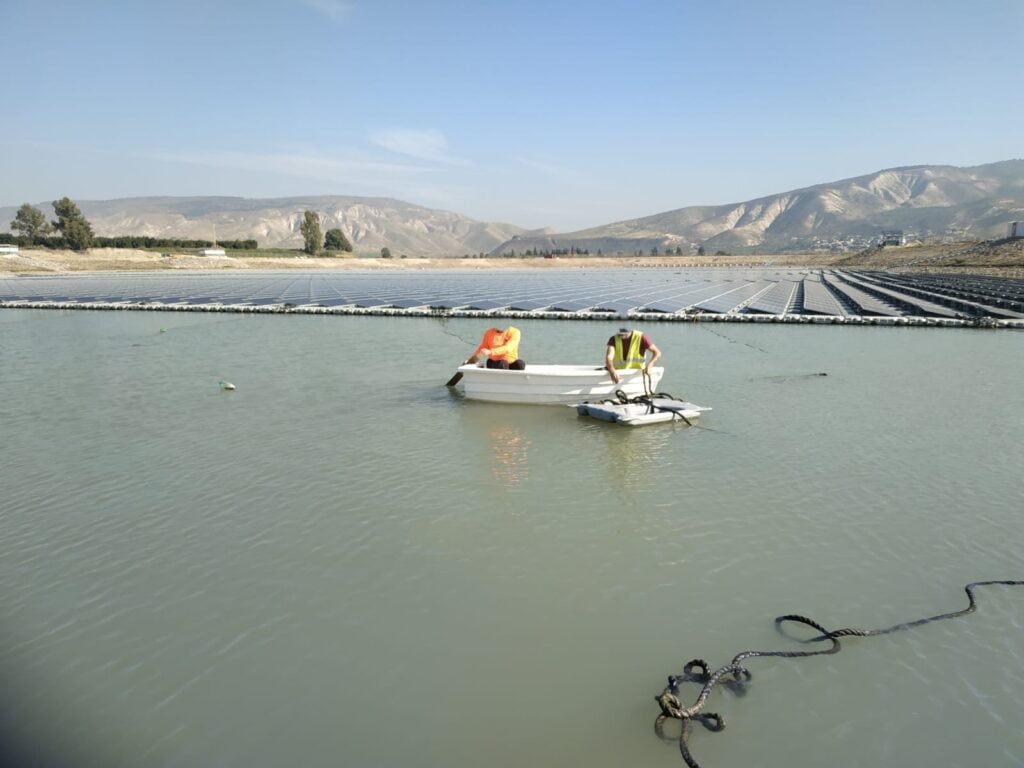
According to some estimates, the current “military aliyah” from 2022 could reach 200,000 people. It will be the second largest wave of repatriation after the “big Aliyah” from the USSR in the early 1990s. And all these people need jobs in Israel.
And all this mass of people will flood into the Israeli labor market. This market is quite peculiar and not always favorable to natives of the former Soviet Union. We found out what Russians will encounter when they enter this labor market. And what you can do to protect your employment rights in solar panel installation.
“Labor makes free.”
“Don’t weave, you have to run here. If you don’t want to, we’ll find someone else.“:” the cablan shouts to the workers installing the solar panels. “You can’t stand or sit, you have to move all the time, even if there’s nothing to do.”
Kablans, as they call contractors in Israel who outsource orders from large firms. This is done to reduce social payments, salaries and minimize the cost of providing social guarantees to employees. Israel is a Klondike for kablans, almost a quarter of all employees work through them. Whereas in the U.S. and Western Europe, only about 5% of employees are employed.
Even through kablan to find a job with a salary of more than 35-40 shkl. per hour, is difficult enough. This kind of work will take you 12-14 hours a day, including pickup. Of course, you can register with various groups and employment agencies. But, it’s unlikely to help.
The job, which pays 420 shekels for 8 hours of outdoor time, looks attractive. The installation of solar panels stands out nicely from the actively offered options in the employment office. Work in assembly and plastic plants, or overnight counting of goods. Solar panels bode well for short workdays and fairly high earnings. It’s a kind of “sip of economic freedom.
In Israel, solar energy is being actively implemented. Solar power plants are being built all over the country. There are many of them on the roofs of buildings and on the smooth surface of technical lakes at kibbutzim and agricultural settlements. The field is booming, thanks to the financing of such projects through investors and concessional lending. In addition, the fight against global warming, of course, gives such projects a political motivation. The Ministry of Energy has ambitious plans until 2030. Raise the target for electricity production from renewable sources from 17% to 30%. And this plan requires an army of hired laborers, who are just now coming to Israel.
You had to come out yesterday.
I call the number listed in one of the many ads. The coveted “search for workers to install solar panels on reservoirs and roofs.” On the other side, they say cheerfully, the work is not difficult, no training is required. Payment 420 shekna per day from 6.30 to 15.00, there is a ride. The contractor, let’s call him Oleg, says in a cheerful voice that he had to go to work yesterday. You have to move around a lot at work, and you can get your paycheck in cash.
Although it is possible to work officially, with “tlusha” (payslips). There is even an option to receive partly in cash and partly officially. For those who don’t want to not go over the 9,000-school limit. After this boundary, payroll taxes increase dramatically. Working in the black covers a large portion of the solar panel installation workforce. True, there remains the rhetorical question of Israeli law violations by contractors. And are the companies involved in the construction of such power plants aware of these violations.
Oleg, the contractor, includes me in the WhatsApp group. After 8 p.m., it shows a list of employees for the next day. As a group, drivers make arrangements with those they give rides to. The delivery is carried out in passenger cars, 4-5 people each. Work begins at 6:30, i.e. From Haifa you have to leave at 4:30-5:00. The car collects workers on the road. The whole trip stretches for 2 hours in one direction and in the other. Naturally, no one pays for the trip.
A separate point has to do with breaks and lunch. According to preliminary information from the kablan, the work ends at 3 p.m., i.e. 8 hours and 30 minutes for lunch. You have to be in continuous motion for eight hours. You can only take a break for 30 minutes during lunch. But these arrangements were always broken, and the work ended at 3:20 p.m. From these 20 minutes a day for a month accumulates a decent amount. But it is impossible to prove to kablan Oleg that the amount runs into his pocket.

The beginning of the work journey
On my first day on the job, we were brought to the Jordanian border. It is one of the technical lakes for desalinated water used in agriculture. Numerous floating solar power plants are now being installed on such lakes all over Israel.
The only work clothes we are given are a helmet and a reflective vest. This is a requirement of the safety inspectors. The rest of the work clothes you have to provide for yourself.
The work consists of assembling the panels, connecting them into a single system. Then the assembled structure is dragged onto the water. There are several types of designs. With different types of floats and different types of panels. Each project has different types of connections into a single floating field. There are simpler designs, there are more complex ones. At new facilities, local engineers can take weeks to figure out the specifics of a particular design.
You have to constantly redo already assembled structures. And the working drawings do not always correspond to the actual design. Therefore, at the first stage, the construction is assembled by trial and error.
Nature has no bad weather
Working outdoors has its advantages and disadvantages. And those two main drawbacks are called rain and sun. In winter, there is no work on rainy days and no one pays you for downtime. We’ll find out whether or not there will be work in the evening, after 8 p.m. I don’t know what hydrometeorological center Oleg pulls the weather forecast from. Quite often it happened that there was no work and it never started raining. Sometimes you get up at 4:00. And right before I leave, at about 5:00, it turns out that it’s going to rain, and the work is canceled. In some winter months the brigade can work no more than 10 days. This naturally affects wages.
In spring, the sun becomes a major natural disadvantage, and we are plunged into a scorcher. You can’t touch the red-hot panels, the air is also red-hot, and it’s good if there’s nothing dusty nearby. Sometimes the sole melts on your boots or you get burned by accidentally touching the design. Workers often get sunstroke and heat stroke from constant exposure to the sun. They are dragged off into the shade and given time to rest.
You have to move continuously for eight hours and you can’t sit down. This mode of operation contributes to severe overheating and poses a threat to the health of workers. Drinking water for workers is a separate topic. No one brings water to the workplace in winter. Employees must bring their own water. In summer they bring water in barrels, but you have to demand it. Because of the heat we have to drink constantly, and water quickly runs out.
Proletarian International
The brigade has Russian-speakers from all countries of the former Soviet Union. Repatriates from Russia, Ukraine, Kazakhstan, Uzbekistan, Kyrgyzstan, Moldova, Belarus. Also, members of the Ethiopian community and the Sabra. However, Russian-speakers are in the vast majority. Both olims and old-timers who have been studying the labor market in Israel for more than 20 years work together.
Kolya from Kazakhstan, Igor from Uzbekistan, Sasha from Transcarpathia, Oleg from Crimea, Alexei from St. Petersburg. In Israel, immigrants from the former Soviet Union are one social group. A group with a fairly low socio-economic status. Many of the workers went through plastic plants, overnight grocery counting, and unloading containers. As a result, everyone ended up at the solar panel assembly.
When I ask how long they have been working here, it turns out that not more than 4 months. First of all, not everyone can withstand the scorching sun. Secondly, after one year of employment, each of the employees is entitled to various statutory social benefits. And the kablan naturally does not benefit from it. It’s much easier to fire a worker earlier.
Our cablan Oleg fought with the disgruntled in a simple way. If a person started asking too many questions, he would stop listing them for work. When workers were assigned to sites the next day, the guilty one was placed on vacation. And that means loss of money and downtime. He did this trick with many dissatisfied people. As well as with those who “had the nerve” to suddenly ask for time off.
In motivating employees to be productive, Oleg did not choose between the “carrot and stick”. He only used the whip, in the form of constant shouts of “hurry up, hurry up” and preventive downtime for those who were dissatisfied. Apparently he ate all the motivational “carrots” himself.
Sanitary standards and everyday life at work
Unfortunately, none of the employees are aware of the current sanitary regulations. How long can a person work in the blazing sun? How many breaks are allowed and what are the requirements for water and protective clothing? Even workgroup foremen, who have been working for more than a year, cannot find this information.
Alexander, a tall, phlegmatic brigadier from Moldova, was trying to find sanitary standards for working in the sun. However, but could not solve this problem. And, as a “veteran of the union movement” and a member of the Histadrut for over 4 years, I decided to help. I said I would try to find the data in the unions.

I knew the problems of protecting the labor rights of employees firsthand. I have my own relationship with the labor market in Israel, because I have always been “lucky” with employers. I worked for my first employer for a year and a half. True, it turned out that he didn’t even have a registration with the Bitauch Leumi (National Insurance Institute). Oh, miracle, all of his tushies were fake. The second employer disappeared after the pandemic. He did not pay his pension contributions for two years of work. And he didn’t give any letters of resignation. Just disappeared. In general, I know from my own experience that there is no one to protect the labor rights of repatriates. More often than not, the only way out is through lawyers and the courts. If you are lucky, you can get your money back through bituach leumi. But this process can take at least 2 years.
Both times I was a member of the Histadrut (Confederation of Trade Unions). But I didn’t get not only help, but even advice in Russian. The Haifa branch of the Histadrut reminded me of Franz Kafka’s Castle.
Unions are a school of unlearned lessons
My personal negative experience with the Histadrut led me to seek out other independent unions. This desire was also reinforced by some statistics. Over the past 20 years, the percentage of workers whose interests Histadrug represents has fallen from 85% to 26%. And continues to fall. In large state-owned enterprises, the Histadrut can influence management policy. These are companies like the Electric Company or Israel Railways. Through connections with officials and politicians, many issues are resolved. The vast majority of workers in private companies and firms for hire cannot protect their rights. Unions and their political opportunities were reduced to collecting dues and handing out credit cards. Employees are left alone with the arbitrariness of their employers.
In theory, Israel has a mechanism for protecting the rights of employees. The trade union organization and the collective agreement with the employer, allows you to spell out all the requirements and conditions of work. Given the active development of the solar energy sector, we can assume the active development of labor law. It is conceivable that there is a possibility of creating a branch union or a branch in an existing union. Similar unions have been established, for example, for security guards and care workers for the sick and elderly. I watched the creation of the Care Workers Department at the Histadrut. I watched the signing of the labor agreement between the Histadrut, Bituach Leumi and the association of care companies. But the Histadrut is too clumsy a bureaucratic machine to be reached only from above. In the case of care workers, it was not without political influence. The creation of a separate branch in the Histadrut was pushed through by MK Tali Ploskova.
Personal connections and unions
I arranged a meeting with the coordinator of the independent union Maan. Yoav Gal Tamir. And he explained to me all the difficulties of creating a trade union organization in production. To create a workers’ organization, 30% of the company’s employees need to express their desire to become a member of the union. Only employees who have worked at the company for at least 6 months can create a work organization of the firm, organizations.
And at this point the whole process immediately begins to slow down. No one knows exactly how many crews and at what sites the kablan has. As already noted, very few workers work for more than four months. A large part of them work without official registration, i.e. illegally. Besides, it’s hard to explain what the point of a union is. Well, other than paying your dues and the risk that your employer will just fire you for such an initiative.
Cablans and quiets
The protection of wage workers’ labor rights in the solar industry remains at the level of wild Israeli capitalism. There are two different social classes in terms of wages and social guarantees. The upper class are workers who are officially employed by large companies and government agencies. The lower class are workers doing similar work through kablans.
The main proponent of such discrimination against employees is the State of Israel. There is such a thing as a quiyut (this form of employee immunity, practiced in Israeli government agencies and institutions). If you pay everyone the full package of social benefits and provide a quid pro quo, no amount of money would be enough. So all these socialist perks are only for sabers and other select social groups. Repatriates from the former Soviet Union – the beastly grin of capitalism.
In lieu of an obituary
Nevertheless, several questions remain unanswered:
- Is the assembly of solar panels one of the jobs that are officially dangerous in Israel?
- What are the sanitary standards for working in the sun?
I sent an inquiry to the Israeli Institute for Occupational Safety and Health. So, waiting to hear back, with the hope that a sequel follows.
Igor Kaminyk
